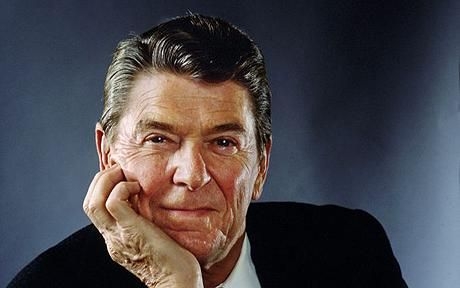There is such a person as a natural born leader.
This is somebody that figured out how to get people to follow them, with little instruction. They say just the right thing and do just the right thing to get throngs of people to listen, love and then follow. Problem is, the natural born leader is a very rare beast. You have to hunt hard to find them, as they really don’t call much attention to themselves. The most famous natural born leaders in history are Jesus, Mohammed and perhaps Buddha.
If you are lucky enough to find yourself working for a natural born leader, kiss your lucky rabbit’s foot and follow this person through their career, if you can. If you do, at some point in time you will learn how to lead. If you are not so lucky, hope that you are working and following somebody that is a made leader.
Yes, we can make leaders. More people have the capacity to be leaders than not. With the right nurturing and opportunities, we can make leaders.
Making leaders is not a mass production line activity. We can take a bespoke approach and come up with very custom, one-on-one leadership training and coaching, a path that many corporations will take with very smart technical people who have a hard time leading. We can teach groups of people leadership skills to improve through leadership retreats and seminars. Insource, outsource, make it an integral part of the organization culture, there are many different paths and many different methods. Look at how the military, over centuries, built leaders. Look at how other organizations do the same work.
Many organizations mess up by not making leaders, depending on their ability to hire apparent leaders from other companies with the hope that those leaders will stay, adding to the leadership shortage that appears to be fact. The problem is not a leadership shortage, it is a shortage of effort to develop the leaders that are already there. There is never an actual leadership vacuum. The leaders are always there in the organization; they just aren’t official leaders. Whenever the official and titled leadership is weak, a strong cadre of shadow leadership emerges to run things. Some of the best organizations learn to identify the shadow leaders, to bring them out of the shadows.
So making leaders is not just an effort to teach skills. It includes letting people have a chance at leading others, giving them the basic understanding of how to lead and presenting many opportunities to step up and try to lead, rewarding success, coaching and encouraging those who have problems to keep up the effort.
What you will find here are examples of ways for making leaders. Some of the stories are from actual events, lessons learned, from the experience of practitioners in the field. You can read these stories to learn how to improve yourself, and we encourage that. However, we want to kick it up a notch, and encourage you to start making leaders from the people who work for you. Lead your people into becoming leaders themselves.
Articles in This Series
Articles in This Series

Management: Science or Art?
Richard Borland once said, “The problem with managers is that they do the first damned thing that pops into their head.” Borland’s argument is that management should be a science, not an improvisational art. Many managers today improvise in a way that supports Borland’s statement. But this is a view of management as a locked-down science of control, not as the art of leadership. Read More

Moral Profit Motive in Management Compensation
This moral obligation extends beyond the simplistic notion of creating shareholder return. It's all well and good to create dividends that are paid back to the investors, but that is not enough. Investors expect more than simply the money generated by dividends. Investors expect management to continue to build a thriving concern that grows its position in the marketplace. Read More
The Impact of Incentives
In 2011, the noise with Occupy Wall Street, the troubles of the sovereign debt in Europe, and the fall of MF Global under the leadership of Jon Corzine provided me the background music for a project on incentive-pay programs for managers and warehouse employees. Read More

Management by Ronald Reagan
Many people who worked for Ronald Reagan thought that “the boss” was a gifted government executive. Many people think that business leaders can learn a few things from the late president. Read More

What Makes a Leader Effective?
These are philosophical questions, without a doubt. Practical questions, too. The last question about managers being leaders addresses an assumed requirement. Read More


